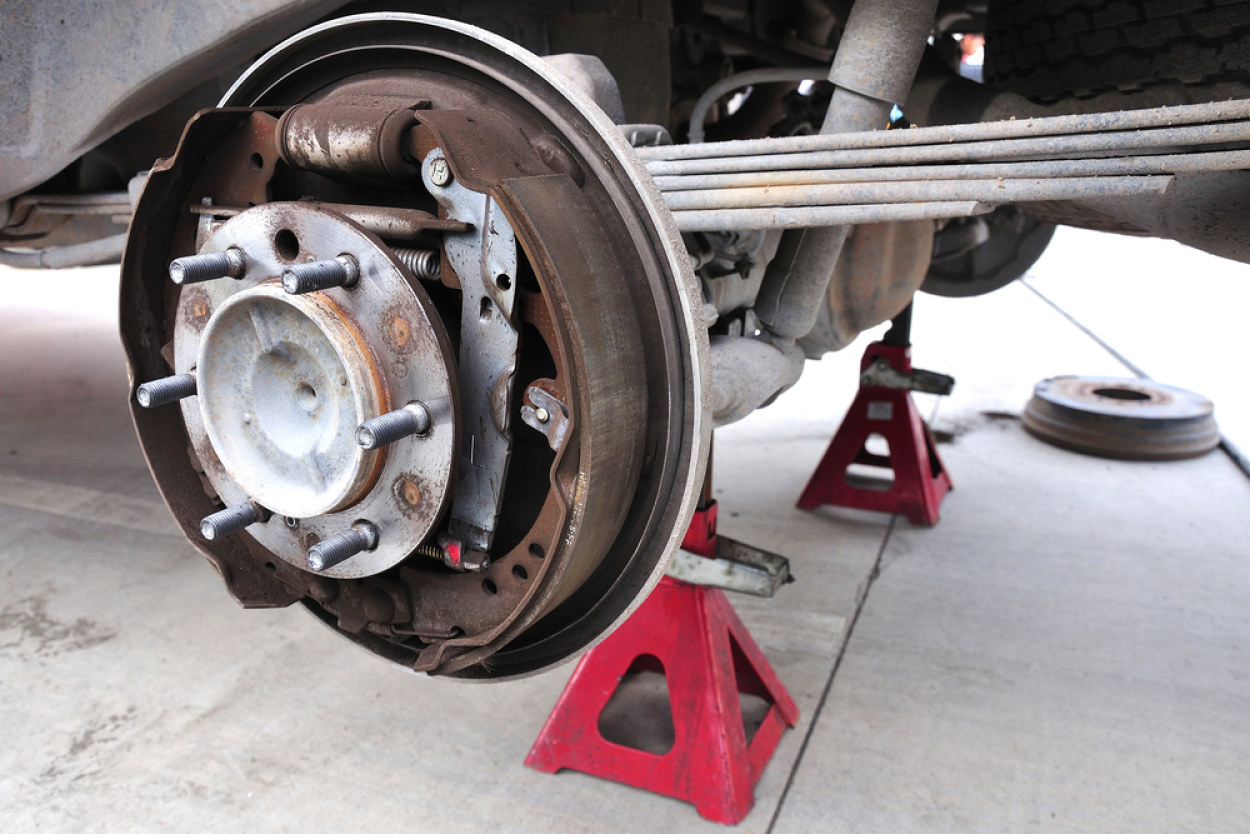What is a Wheel Bearing?
August 28 2019

Today’s vehicles feature numerous additions to make them safer and operate better. Wheel bearings are one of them. The wheel bearing unit is an integral part of your vehicle’s wheel assembly. The part allows the wheels to rotate freely with little friction. They also play an important role in the safety of your vehicle and how it handles. A wheel hub bearing assembly usually includes manufactured Bearings, Sensors and Seals. The assembly is the collection of the different parts that gives the wheels free rotation while the bearing is the part that manages your vehicle’s weight and movement.
Wheel Bearing Details
The Wheel Bearing is a critical piece of the Wheel Hub Assembly. It is the part that connects the wheel and the axle together. More specifically, the wheel bearing is a collection of steel balls, or ball bearings, that’s connected by a metal ring. The bearings make your car safer to drive because they are designed to withstand radial and axial loads from acceleration, gravitation, breaking and cornering forces. Over time, the wheel bearings will stop working properly, so it is something that you’ll wind up replacing if you have your vehicle long enough.
What is the Average Service Life of a Wheel Bearing?
Once your vehicle has more than 75,000 miles logged, the front wheel bearing and the rear wheel bearing could start to fail. However, some last over 100,000 miles. The hub that contains and holds the bearings is attached to the wheel’s spindle, and this is connected to the rest of your vehicle’s suspension. When bearings start to fail, they may make a grinding, hissing or whirring noise. If you hear this type of noise coming from your vehicle, be sure to take it to a mechanic right away. Once a bearing breaks down, it can take other parts with it, costing you more.
A more apparent sign that your car is suffering from failed wheel bearings is violent shaking that worsens and becomes more intense with speed. If your vehicle starts doing this, don’t risk and drive it. Take it to a professional mechanics immediately.
What Causes Wheel Bearings Fail?
There are many reasons that cause wheel bearings to fail, include:
• Incorrect installation
• Damage from road impacts
• Driving conditions
• Vehicle modifications
Incorrect Installation
Vehicle’s original manufacturer and Wheel Bearing’s manufacturer recommend to use a torque wrench for installation. Inappropriate tools, such as an impact wrench or a hammer, can cause damage to the interior or exterior of the wheel bearings, causing them to break down sooner than they should. Along with this, attempting to “save money” by reusing old nuts, bolts or seals instead of replacing them can result in wheel bearings operating under more challenging conditions. This is something else that can bring about premature failure. Using wrong tool can cause over-torqueing or under-torqueing. Torque the wheel bearing strictly according vehicle manufacturer’s specification is critical to the success of the installation and more importantly, safety of the vehicle.

Damage from Road Impacts
The state of your area’s roadways will affect how long your wheel bearings last. Frequent impacts caused by potholes or uneven road surfaces may shorten the lifespan of your vehicle’s wheel bearings. Driving over speed bumps often or hitting the curb can also decrease the life of the wheel bearings.
Driving Conditions
Taking your vehicle into deep water or mud may cause the bearings to break down. Dirt particles, water, road salt or mud could find their way past the seals and into the bearings. When this happens, the grease that keeps them operating seamlessly could become polluted, resulting in the bearings wearing away.
Vehicle Modifications
While you might love the look of a truck with wider or bigger rims, making modifications to your vehicle could decrease the lifespan of the wheel bearings. To make the part last as long as possible, keep manufacturer recommended tires, rims, shock absorbers and springs on your vehicle. This step could make your vehicle last longer in general.
An Important Suggestion
Wheel bearing hub assembly units impact the smoothness of your ride. They aid fuel efficiency and are an important part of your vehicle’s anti-lock braking system. The bearings make sure that your vehicle’s wheels roll down the road and support its weight. Be sure to buy quality ones and don’t risk the safety of your vehicle.
When do you need to replace your Wheel Bearings and Hub Assemblies?
This Article, “How to check your Wheel Bearings for Signs of Damage”, provides useful Tips on Signs of Hub Damage and How to Perform your own inspections.

Write A Comment